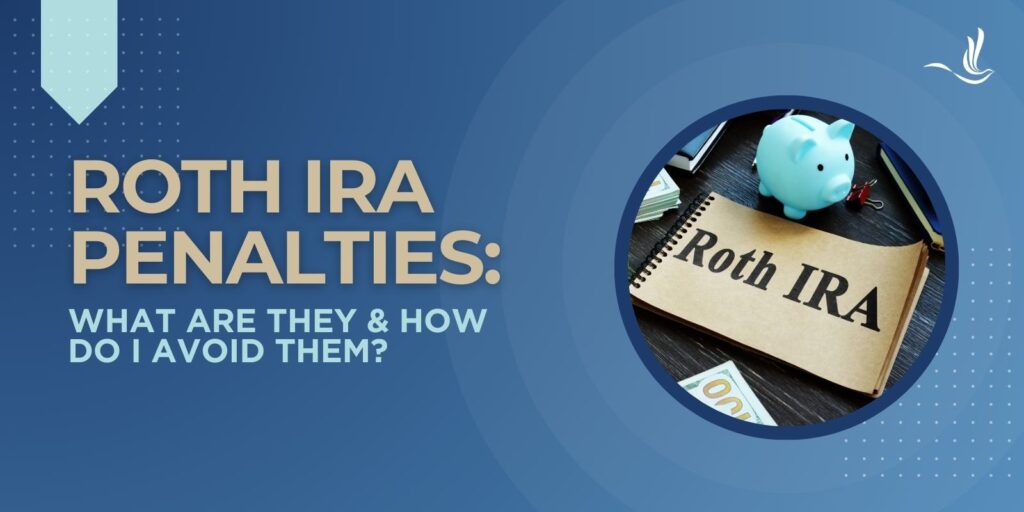
Roth Individual Retirement Accounts (IRAs) are popular investment vehicles that offer tax advantages for retirement savings. However, it’s crucial for account holders to be aware of Roth IRA penalties to make informed financial decisions. This article will delve into the various penalties associated with Roth IRAs, helping readers navigate the potential pitfalls and optimize their retirement planning.
Early Withdrawal Penalties
One of the primary penalties associated with Roth IRAs is the early withdrawal penalty. Typically, Roth IRAs are designed to encourage long-term savings for retirement. As such, the IRS imposes penalties for withdrawing funds before reaching a certain age.
The Roth IRA must be at least five years old to withdraw earnings. If you withdraw earnings from your Roth IRA before the age of 59½, you may be subject to a 10% early withdrawal penalty. This means you’d pay 10% of the amount withdrawn as a penalty. This penalty is in addition to any regular income tax that may apply to the earnings. It’s important to note that contributions to a Roth IRA can be withdrawn tax and penalty-free at any time, as these have already been taxed.
Exceptions to Early Withdrawal Penalties
While the 10% early withdrawal penalty is a general rule, there are exceptions that allow account holders to avoid this penalty under certain circumstances. Some common exceptions include:
- Qualified higher education expenses for you, your spouse, children, or grandchildren
- First-time home purchase (up to $10,000)
- Birth or adoption of a child (up to $5,000)
- Unreimbursed medical expenses exceeding 7.5% of your adjusted gross income
- Unreimbursed health premiums while you are unemployed
- Disability or death
- Substantially equal periodic payments (SEPP)
- IRS levy
- Withdrawal during time in armed forces
It’s crucial to understand these exceptions thoroughly and consult with a financial advisor to ensure compliance with IRS regulations.
Excess Contributions Penalties
Contributions to a Roth IRA are subject to annual limits set by the IRS. In addition, you may not contribute more than your household earned income. In 2023, the Roth IRA contribution limit is $6,500 if you are under the age of 50, and $7,500 if you are 50 or older. Beginning in 2024, these amounts will increase to $7,000 and $8,000 respectively. These amounts are the maximum, but they can decrease if your modified adjusted gross income (MAGI) falls within higher thresholds. For example, if you are a single filer with a MAGI between $138,000 and $153,000 in 2023, you can make Roth IRA contributions. However, you are not eligible for the full limit. In 2023, if you are a single filer with a MAGI of more than $218,000, you are not eligible to make Roth IRA contributions.
If you contribute more than the allowed amount, you may face excess contribution penalties. The penalty is 6% of the excess contribution amount for each year the excess remains in the account. To avoid this penalty, it’s essential to stay informed about annual contribution limits and adjust contributions accordingly.
Failure to Follow Conversion Rules
Roth IRA conversions involve moving funds from a Traditional IRA or a qualified retirement plan to a Roth IRA. If the conversion rules are not followed correctly, penalties may apply. For example, if you convert funds and then withdraw them within five years, a 10% penalty may be imposed on the earnings portion of the distribution. You’ll need to report any conversions to the IRS using Form 8606, Nondeductible IRAs when you file your taxes.
Tax Help for Those Who Have Roth IRAs
Roth IRA penalties are important considerations for individuals planning their retirement savings strategy. Understanding the rules surrounding early withdrawals, contribution limits, and conversions is essential for avoiding unnecessary financial setbacks. To make the most of the benefits offered by Roth IRAs, it’s advisable to seek guidance from financial professionals who can provide personalized advice based on individual circumstances. By staying informed and making informed decisions, individuals can optimize their Roth IRA contributions and enhance their financial well-being in retirement. Optima Tax Relief is the nation’s leading tax resolution firm with over a decade of experience helping taxpayers with tough tax situations.
If You Need Tax Help, Contact Us Today for a Free Consultation